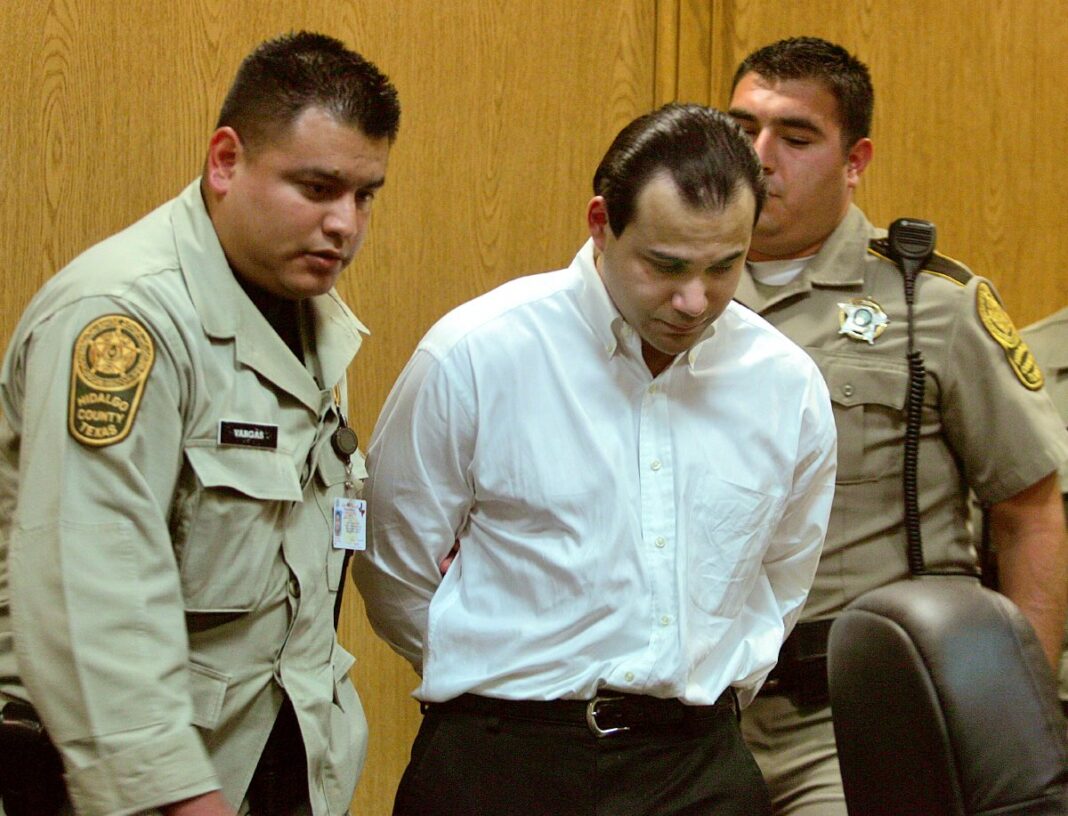|
Only have a minute? Listen instead
Getting your Trinity Audio player ready...
|
A federal judge has recused himself from hearing a case involving convicted child killer John Allen Rubio.
U.S. Federal Judge Roland Olvera on May 5 signed a motion to recuse himself from hearing further court proceedings pertaining to Rubio, federal court documents reflect.
Instead, federal judge Fernando Rodriguez Jr. will hear the case.
No further hearing dates have been scheduled, a court docket reflects.
Olvera’s recusal comes one month after a federal court denied a motion filed by a state official requesting Olvera remove himself from the case.
“This motion… is not a high-minded gesture to impartial adjudication; it is an attempt to shop for a more receptive judge after Judge Rolando Olvera refused to declare Rubio’s claims meritless,” states the response to Lumpkin’s motion to recuse. “And it traffics in an unserious theory that a judicial determination adverse to Rubio in an earlier case creates an appearance of bias sufficient for the Director to move for recusal. There is no legally cognizable ground for recusal associated with Judge Olvera’s judicial role in a collateral challenge to an earlier conviction.”
On March 14, Bobby Lumpkin, director of Texas Department of Criminal Justice Correctional Institutions Division, filed the motion seeking Olvera recuse himself stating since Olvera first stayed the case to allow Rubio to exhaust state remedies and then reopened case that “his prior involvement in Rubio’s case mandates disqualification under the relevant statute, the Director moves to have Judge Olvera recused and ask that this matter be assigned to a new judge,” the motion reads.
On Feb. 22, Olvera signed an order to reopen Rubio’s case. His order lifted a stay on the case and will allow Rubio’s attorneys to submit a seconded amended petition that may probably cite why the Brownsville father’s conviction should be tossed out.
Lumpkin’s motion in part states that any justice, judge or magistrate in the United States shall disqualify himself from any proceedings in which his impartiality might be reasonably questioned.
“He shall also disqualify himself in the following circumstances: where he served in governmental employment and in such capacity participated as counsel, adviser or material witness concerning the proceeding or expressed an opinion concerning the merits of the particular case in controversy.”
Since Olvera oversaw Rubio’s initial state habeas proceeding before Rubio’s trial, his active participation in the case likely disqualifies him, the motion states. “Judge Olvera was a ‘governmental employee’ who expressed an opinion concerning the merits of this particular case in controversy.”
A jury in 2010 found Rubio guilty in the beheading of Julissa Quesada, 3; John E. Rubio, 14 months; and Mary Jane Rubio, 2 months; the three children of his common-law wife Angela Camacho. John Allen fathered Mary Jane.
Rubio admitted to killing his children because he thought they were possessed by the spirit of his dead grandmother, court documents reflect. He and Camacho had discussed burying the childrens’ bodies and fleeing to Mexico.
In his petitions, attorneys claimed that Rubio’s appointed defense in his murder trial did not represent him properly, the state provided false testimony, and that his case was handled by a district attorney that was steeped in scandal and misconduct.
According to a confession Rubio made to police, he admitted to killing the children in 2003 because he believed there was an evil presence in them. He even asked one of the officers first to arrive at the crime scene to place him under arrest, according to the officer’s statement.
Rubio, 40, a Brownsville native, remains on death row at the Polunsky Unit in Livingston, Texas.
Camacho, 41, pleaded guilty to murder in 2005 and was sentenced to life in prison and remains in custody.





